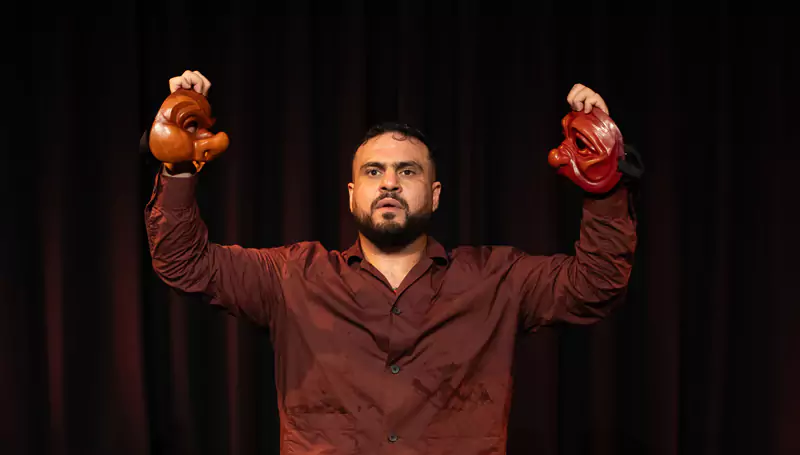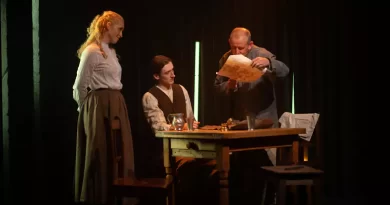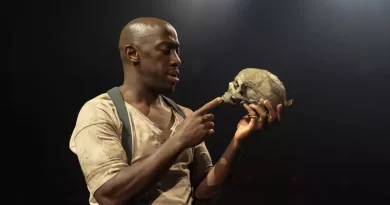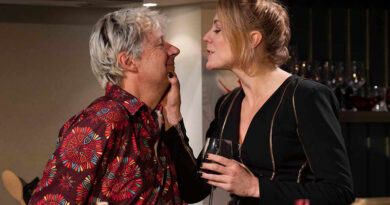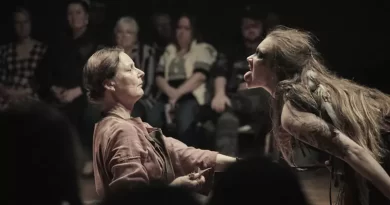“The Horse of Jenin” and “Palestine: Peace de Resistance”, Edinburgh Festival Fringe
Mark Brown in Edinburgh
20 August 2025
In 2003 – in the midst of the second Palestinian Intifada (“Uprising”) against Israel’s illegal Occupation of the West Bank and Gaza – the German visual artist Thomas Kilpper took up residence in Jenin, a sprawling Palestinian refugee camp in the West Bank. Working with local people he collected broken objects – the detritus of the uprising and of the Israeli military’s repression of it – and built it into a sculpture of a horse (the animal is a potent symbol of freedom in Arabic culture).
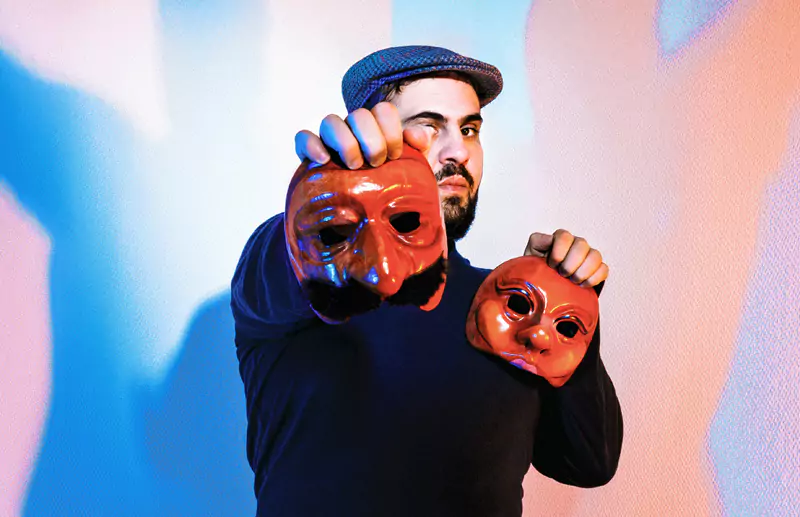
The Horse of Jenin.
Photo credit: Kamerich & Budwilowitz.
This artwork comprised diverse materials, including, poignantly, the door of an ambulance that was attacked by the Israelis in 2002 as it attempted to reach a wounded girl. Three medics were killed in the attack, including the leading physician Dr Khalil Suleiman, after whom the hospital in Jenin is now named.
The extraordinary sculpture gives its name to the performance work The Horse of Jenin (which plays at the Pleasance Dome venue until August 25). Created and performed by the superb Palestinian actor and comedian Alaa Shehada, the piece blends comedy, mask theatre and storytelling into a beautifully complete show.
Shehada combines his own biography (he and his first love used to meet under the horse) with that of the sculpture itself. He recalls the horse’s visit to Ramallah (seat of the Palestinian National Authority) to meet President Yasser Arafat.
Inevitably – in a story made for dark comedy – the horse found itself held up at a checkpoint for a lengthy period of time by young, nervous, gun-toting Israeli conscript soldiers. Eventually, Shehada recalls, the Israelis assured themselves that the sculpture was not a Trojan horse.
The performer’s, by turns, hilarious, touching and – in relation to the details of the Occupation – enraging storytelling is complemented by delightful mask work. He uses a series of beautifully made masks as he transforms himself into various people from his young life, ranging from family members to the mayor of Jenin.
His storytelling ranges from the beautifully evocative (such as his grandfather gifting him a toy horse when he was a small boy) to the heartbreaking (the killing of Shehada’s best friend, Ahmed, by the Israeli army during the Intifada). Everything he says – from the disrupted day-to-day life of a Palestinian community to the humiliations and devastations of the Occupation – is magnified in resonance by the current genocide in Gaza and the increased violence and repression (both by armed illegal settlers and Israeli forces) in the West Bank.
Shehada speaks to his involvement with the famous and courageous Freedom Theatre of Jenin where he learned and honed his craft as a performer. It is a minor miracle that – in the midst of war and a 58-year occupation – the company is able to send into the world actors who possess such tremendous communicative skills.
The performer is charming, humorous and captivating. If his show began its Fringe itinerary selling tickets on the basis of solidarity and sympathy, it ends the run as a theatre work that is receiving richly deserved audience and critical acclaim.
A final word on Kilpper’s sculpture: in 2023 – during a raid on the Jenin camp – the Israeli Occupation forces removed, and later destroyed, The Horse of Jenin.
~ ~ ~
Imagine, if you will, a cross between the gloriously madcap English comedian Harry Hill and the late, great Palestinian cultural and political theorist Edward Said and you might get something approximating to Sami Abu Wardeh. The creator and performer of the show Palestine: Peace de Resistance (Pleasance Dome, until August 24). Wardeh, like Shehada, is a superb storyteller and comedian.
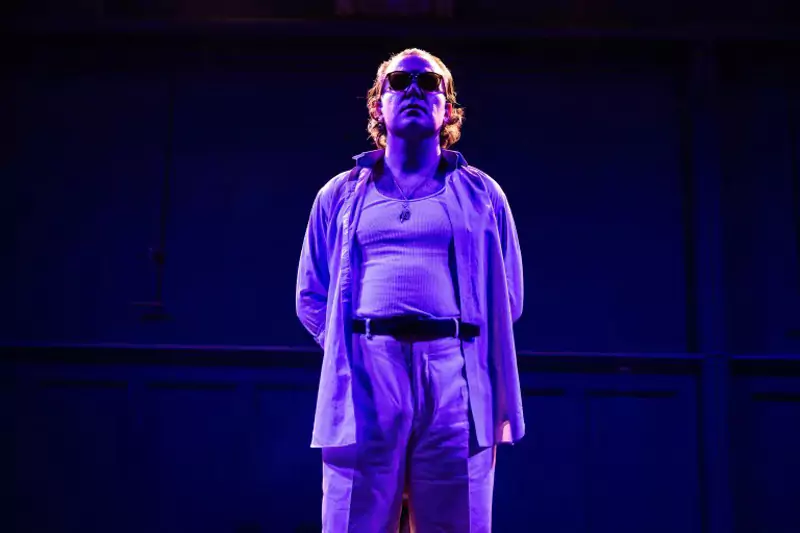
Palestine: Peace de Resistance.
Image credit: Zoe Birkbeck Photography.
Wardeh’s late night show is a skilfully-wrought combination of engrossing, politically-charged fiction, stand-up comedy, physical humour, madcap cocktail-making and (surreally) avian hand puppetry. Throughout the show, he returns, between jokes and skits, to his story of the Palestinian chancer Mergeuz (yes, like the sausage) and the lover he encountered in Algiers.
The performer’s personal heritage is both Palestinian and Irish, which might explain why his storytelling (as well as the stylish stool on which he often perches) is reminiscent of the much-loved Irish comedian Dave Allen. The tale of Mergeuz and his lover (no spoilers, let’s just say she has more than one name) might be something Allen would have devised had he spent time in the company of the Italian master filmmaker Gillo Pontecorvo (creator of the famous movie The Battle of Algiers).
Wardeh’s storytelling has a fantastically evocative, as well as hilarious, quality. Like a number of other shows on this year’s Fringe (including Khalid Abdalla’s excellent Nowhere at the Traverse Theatre), his choice of subject – the Algerian liberation struggle – puts the terrible current events in Palestine in their broader historical and political context.
An accomplished stand-up, Wardeh’s show is peppered with old-style, set-piece gags. He does a tremendous line in Irishman, Palestinian and Englishman jokes, not least a lovely gag in which the aforementioned trio rock up at the gates of Heaven and are quizzed on their relative achievements by Saint Peter. It’s a joke with the sharpest of edges, given Britain’s historic role in Palestine (from the Balfour Declaration of 1917, through the British “mandate” in Palestine, 1920-48).
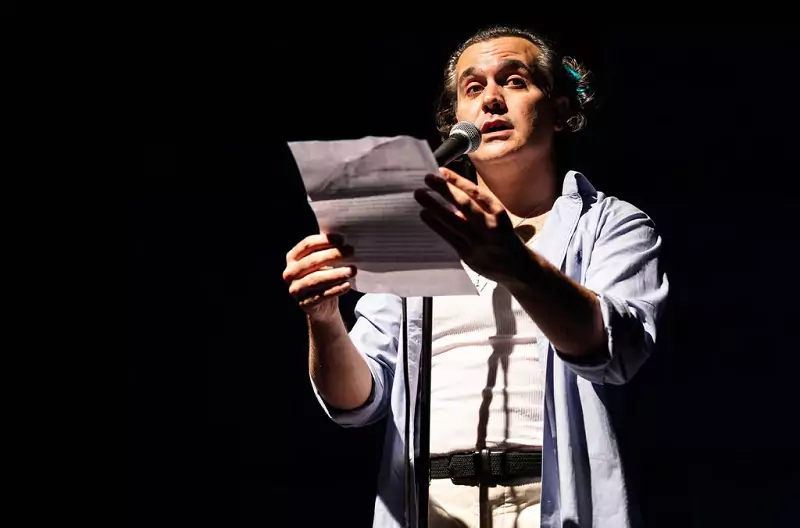
Palestine: Peace de Resistance.
Image credit: Zoe Birkbeck Photography.
This show shifts back and forth between its various elements, which include physical comedy and, even, a moment of live music (if Chekhov believed you shouldn’t have a gun on stage without using it, Wardeh takes the same approach to his guitar). His strand of self-deprecatory humour – he dresses, he confesses, “like an Iranian arms dealer” – is delicious.
By contrast – as so often with Palestinian people – his autobiographical stories carry an arresting, powerful truth and integrity. His memory of being pointed towards Palestine by his father as they stood on a Jordanian mountain top (“You see that mountain? You see the one behind it?”…) is as agonizing as it is funny.
Both Shehada’s The Horse of Jenin and Wardeh’s Palestine: Peace de Resistance speak to the craft and talent of their creators. They speak, too, to a Palestinian story that carries urgency, moral authority and demands – finally, after 77 long, tortuous years – to be heard.

